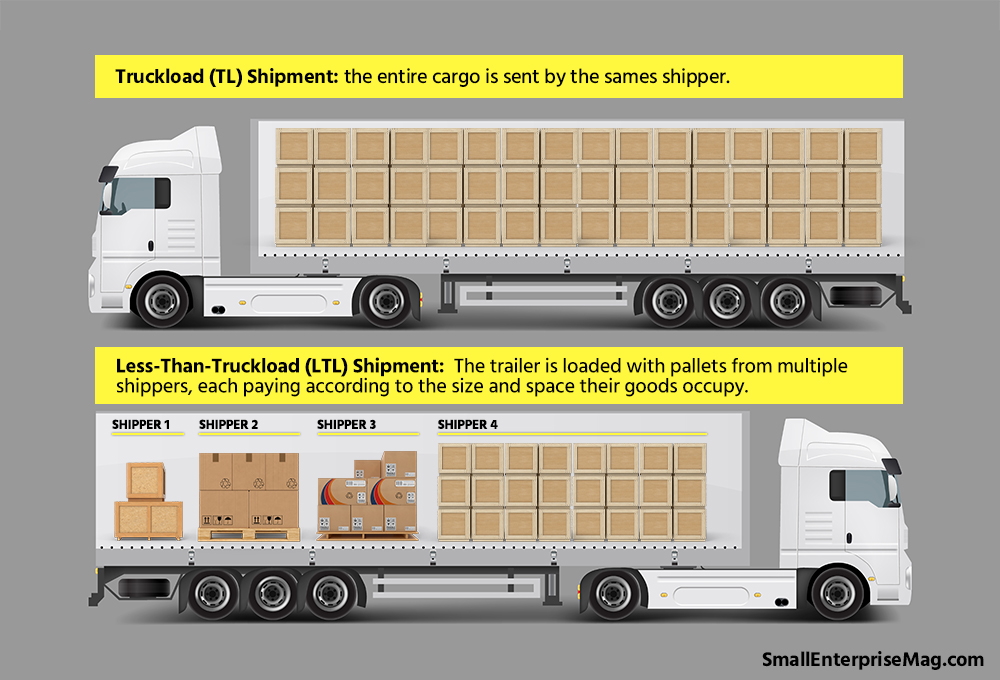As your business grows, you may face shipping challenges. Your shipment is too large for standard shipping but not enough to rent an entire truck. LTL freight shipping fills that gap. Learn how this method can save you money.
What is LTL Shipping?
Less-than-truckload (LTL) freight shipping is used when a shipment doesn’t require a full trailer. Instead of renting the entire truck, businesses share the space with other shippers, similar to ridesharing for packages. LTL is ideal for loads between 150 and 15,000 pounds. Shipments are palletized and kept organized in the truck. LTL carriers optimize loads for the best efficiency and results.
How Does it Work?
Unlike full-truckload shipments, LTL trucks make multiple stops. The truck’s arrangement is optimized based on the delivery route. Costs vary based on space, items shipped, and pickup/drop-off locations.
Reduce Costs
LTL shipping helps businesses reduce shipping costs, especially for smaller, frequent shipments. With LTL, you only pay for the space you use, saving money and boosting profit margins. This makes expansion more feasible for growing businesses.
Increase Security
LTL shipping offers better security, ensuring shipments arrive in good condition. Using pallets reduces the chance of damage from jostling. Pallets are handled with care by jacks or forklifts, minimizing handling damage.
Get Additional Service Options
LTL shipping providers often offer additional services like inside pickup, liftgates, and more, which standard shippers may not provide.
Use Tracking
Tracking is a key feature in LTL shipping, offering updates through a bill of lading number, PO number, or other shipment references.
Save the Environment
LTL shipping reduces the number of trucks on the road, helping your business cut its carbon footprint. The shipping industry is the sixth-largest producer of greenhouse gas emissions globally.
When to Choose LTL Shipping
LTL shipping is best for smaller, cost-efficient shipments when speed is not the top priority. Because of multiple stops, delivery times may be slower than full-truckload options.
Factors That Determine Shipping Rates
LTL shipping costs depend on shipment size and distance. Special handling and expedited shipping will also increase rates.
Preparing LTL Shipments
Accurate measurements and proper palletizing are essential for LTL shipping. Complete your bill of lading carefully and follow best practices for loading and labeling pallets.
Pitfalls to Avoid
Avoid skipping palletization, as many LTL carriers won’t accept non-palletized goods. Always account for potential delays and insure your shipments.
Use a Transportation Management System
Implementing a transportation management system helps optimize shipments, ensuring the best carrier and route for your needs.
Work With Consolidators
Consolidators group shipments from multiple businesses, optimizing space and timing to maximize efficiency and minimize costs.
Provide Accurate Information
Accuracy in shipment details is critical to avoiding delays. Measure shipments carefully and document special handling requirements to streamline the process.
Discover the Benefits of LTL Freight Shipping
LTL freight shipping offers a cost-effective, efficient way to ship smaller loads. Always document your shipments, use pallets, and insure your goods.
For more resources to optimize your shipping, explore our articles.
